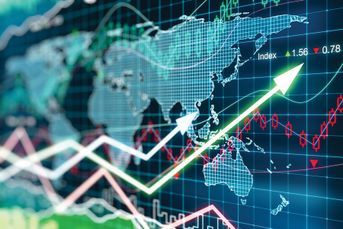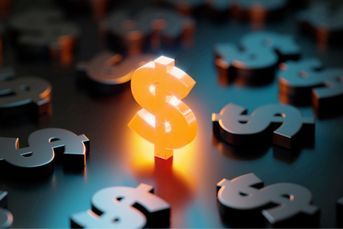Investors skeptical as stocks top one record after another
The stock market ain't the party it used to be. It just blasted through one important psychological barrier, and another now looks tantalizingly close. Yet the mood among investors is dour and businesslike.
The stock market ain’t the party it used to be. It just blasted through one important psychological barrier, and another now looks tantalizingly close. Yet the mood among investors is dour and businesslike.
As the S&P 500 Index reaches 2,000, part of a worldwide rally that’s brought global stocks to an unprecedented $66 trillion in value, advisers say their clients aren’t celebrating. They’re nervous.
“People are still worried,” says William Rutherford, who runs his own investment firm in Portland, Oregon. “They don’t trust the market, they don’t trust the rally and they don’t trust Wall Street.”
(Related: Fed tightening shouldn’t disrupt stock market)
It’s nothing like, say, 14 years ago. Then used car salesmen quit to become day traders and stocks with no profits tripled on their first day of trading. The mood was exuberant and more than a little crazy: In the first 70 days of 2000 alone, the Nasdaq Composite Index jumped 24%. The tech-heavy index would eventually lose 78% of its value.
It’s taken 14 years, but the Nasdaq is now basically back to those days. And this time the index is stocked with companies like Google Inc. (GOOG) and Facebook Inc. (FB) rather than unprofitable pipe dreams like Pets.com. The Nasdaq’s record of 5,048.62 on March 10, 2000 is still 10% away; at its current pace, that could take another year or more. But the Nasdaq is already above its close of 4,550.33 on Feb. 23, 2000. In other words, unless you bought tech stocks in the final two weeks of the tech bubble at the turn of the millennium, you’ve now fully recovered.
What hasn’t recovered, thankfully, are some of Americans’ more naive ideas about investing: For example, the idea that picking the right stock is a surer bet than consistently saving in low-cost index funds. Since 2007, Americans have put $795 billion into cheap domestic index mutual funds and exchange-traded funds, according to the Investment Company Institute, while pulling $575 billion from pricier active stock funds. With $1.4 trillion in index stock funds (which have expenses that are one-seventh those of their active peers), investors are saving $11 billion a year with the cheaper option. A little queasiness has turned out to be healthy for investors.
Learn more about reprints and licensing for this article.








